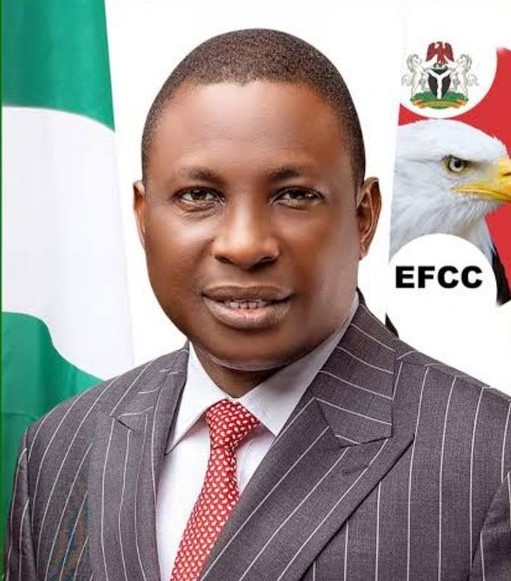Mr. Olanipekun Olukoyede, the Executive Chairman of Economic and Financial Crimes Commission (EFCC) on Wednesday explained ways of ensuring transparency and accountability in the budgeting and execution of Constituency projects.
Olukoyede made the explanation in Kano during a statewide consultative meeting on fostering transparency, accountability and citizen participation in the fight against corruption in Nigeria.
He said the concept of Constituency projects was introduced with the aim of ensuring equity in the allocation of projects.
Olukoyede said these were projects sited in the constituencies of state and federal lawmakers by various Ministries, Departments, and Agencies (MDAs) of government.
”They are usually in the budgets of the federation or state,” he said.
The EFCC chairman said community leaders, Civil Society Organisations (CSOs) and Nigerians in general needed to remain vigilant and come together to enhance delivery of projects.
”This is because these projects are derived from the resources meant for development to get to the grassroots, where we have the people who need them,” he said.
Olukoyede said this was service delivery, and in Nigeria it is a critical dimension of the country’s national efforts.
”This helps in fostering accountability and ensure that the dividends of democracy reached everywhere in the country.”
But he said this could only be achieved when communities were empowered to hold their leaders accountable, particularly in the monitoring of Constituency projects.
Olukoyede said security agencies also could not do it alone, and the society at large needs to come in and hold their political office-holders, especially the elected ones, accountable.
Speaking also, Dr. Ibrahim Zikirullahi, the Executive Director, Resource Centre for Human Rights and Civil Education (CHRICED) said Nigeria was confronting numerous challenges which required immediate attention and concerted efforts.
He identified poverty as one of the challenges, saying this continues to afflict a substantial portion of the country’s population, leaving many without access to basic necessities.
Zikirullah explained that mismanagement and diversion of funds intended for these projects have not only affected development, but have also eroded public trust in political institutions.
“We should leverage on technology and social media to amplify our voices and connect with like-minded individuals, who share our commitment to fighting against corruption,” he said.
The News Agency of Nigeria (NAN) reports that the Deputy Vice- Chancellor and other education stakeholders from Bayero University Kano (BUK), Development partners, government ministries and agencies, among others, attended the occasion.(NAN)


